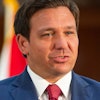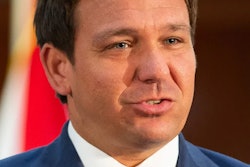 File photo
File photo
The rule, which was published Friday in the Federal Register, grants Education Secretary Linda McMahon unilateral authority to determine which organizations are ineligible for the program. It takes effect July 1, 2026.
According to critics, the rule could disqualify employees of sanctuary jurisdictions and nonprofit organizations that provide immigrant family support, gender-affirming care, diversity and equity programs, or assistance to protesters exercising First Amendment rights.
The Public Service Loan Forgiveness program was established by Congress in 2007 on a bipartisan basis. Under the program, federal, state, local and tribal government employees, as well as workers for 501(c)(3) nonprofit organizations, can have their remaining federal student loan debt forgiven after making 10 years of qualifying payments while working in public service. More than one million workers have received loan forgiveness through the program to date.
Two advocacy organizations, Democracy Forward and Protect Borrowers, issued a joint statement committing to challenge the rule in federal court.
"This is a direct and unlawful attack on nurses, teachers, first responders, and public service workers across the country," the organizations said. "This new rule is a craven attempt to usurp the legislature's authority in an unconstitutional power grab aimed at punishing people with political views different than the administration's."
Alexander Lundrigan, Higher Education Policy and Advocacy Manager at Young Invincibles, called the changes "illegal" and "politically motivated."
"The administration cannot unilaterally rewrite a program that was passed into law by Congress," Lundrigan said. "PSLF eligibility is defined by law, not political ideology."
Jaylon Herbin, director of federal policy at the Center for Responsible Lending, agrees, adding that the regulation "is the latest in a long list of cruel tricks imposed on workers and groups who hold views or serve people this administration doesn’t like."
He added that the restrictions "will consign millions of student borrowers to decades of unaffordable debt repayment and will worsen existing shortages of teachers, police and emergency services workers, and nonprofits who help local residents thrive and contribute to building vibrant, economically resilient communities."

















